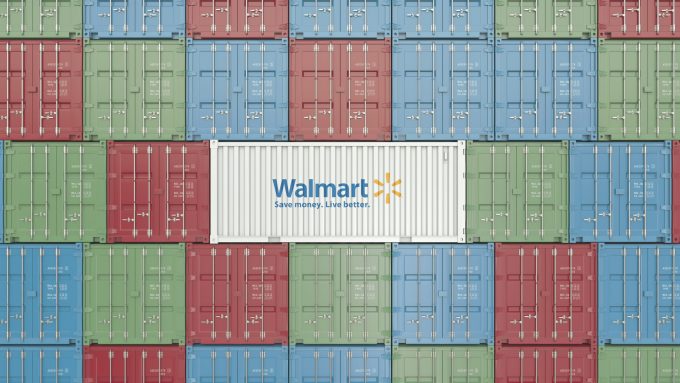De minimis-induced ecommerce demand slump could cripple freighter operators
The US’s considerable de minimis fee and tariff hike will “cripple the [air cargo] industry”, ...

Retail leviathan Walmart was 2021’s highest emitter of carbon among importers to the US by sea.
According to a report released yesterday by Ship It Zero, Walmart shipped 850,630 teu at a carbon cost of 788,019 tonnes of CO2.
But the retailer told The Loadstar it was now more than halfway towards its environmental goal.
Ship It Zero’s All brands on deck report ranks US companies according to overall emissions through 2021, with Walmart followed by Target and The Home Depot.
However, Walmart’s numbers appeared to ...
Maersk u-turn as port congestion increases across Northern Europe
Maersk Air Cargo sees volumes fall as it aims for 'margin in favour of revenue'
Keep our news independent, by supporting The Loadstar
Container spot rates diverge: to Europe still falling, but firmer to the US
Hapag-Lloyd won't take bookings if port congestion leaves cargo stranded
Ecommerce likely the front-runner in resurge of transpacific trade after deal
Airfreight players eye new routes as demand on the transpacific nosedives
Changing shipment origin won't wash: US CBP turns away whole truckloads
Expeditors reports healthy growth in a 'frenzied landscape of tariffs'
Service chaos from trade ban with India a problem for Pakistan shippers
China-US trade tariff pause could drive a rebound for transpacific rates
Airfreight rates ex-China 'loss-making', but hopes of a trade deal stay high
Indian coastal freight attracts major carriers, but regional tension disrupts
Serious threat to jobs in US logistics as tariffs cause economic 'stagflation'
APMM floats along on 'solid' Q1 profitability in Ocean, well prepared for choppy water
MSC in terminal switch as Nhava Sheva gets strong start to new fiscal year

Comment on this article